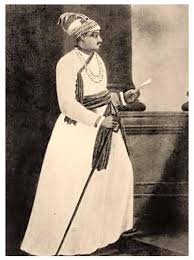SIRAJ UD DAULA (NAWAB OF BENGAL)
SIRAJ UD DAULA (NAWAB OF BENGAL)
Ali wardi Khan was succeeded by his grandson sirajuddaula the son of Ali wardi's youngest daughter. Siraj inherited many troubles from his grandfather he had a rival in his cousin, shaukat jung, the nawab of purnea, a hostile aunt, Ghasiti Begum, a childless widow ,a rebellious commander of the army, Mir jafar. Omi Chand, Rai Vallabh , Rai durlabh or others who were a opposed to him. he defeated shaukat Jung and killed him in battle , divested the Ghasiti Begum of treasures and secured her and dismissed mir jaffer appointing mir madan in his place. The English fortified Kolkata without the nawabs permission. the company on its part suspected that Siraj would drastically reduce its trade privileges in collusion with French in Bengal. thus when Siraj attacked and cease the English fort at Kolkata it brought their hostility into open.The arrival of a strong force under the command of Robert Clive at Calcutta from Madras strengthen the English position in Bengal. Clive forged a secret alliance with the traitors of the nawab, Mir Jafar, rai durlabh , Jagat Seth and omichand. under the deal Mir Jafar was to be made the nawab who inturn would reward the company for its services. The secret alliance of the company with the conspirators further strengthened the English position so the English victory in the battle of plassy June 23 1757 was decided before the battle was even fought due to the conspiracy of the nawabs officials. 50000 strong force of Siraj was defeated by a handful of clive forces. Siraj was captured and murdered by the order of mir jafar's son miran, at the disposal of battle, the English was placed with vast resources of Bengal, they monopolised the the trade and commerce of Bengal. The battle established the military supremacy of the English in Bengal their main rivals the French were ousted , they obtained a great territories for the maintenance of a properly equipped military force and their prestige increased manifold.
Reference: Modern Indian History-Rajiv Ahir


Comments
Post a Comment